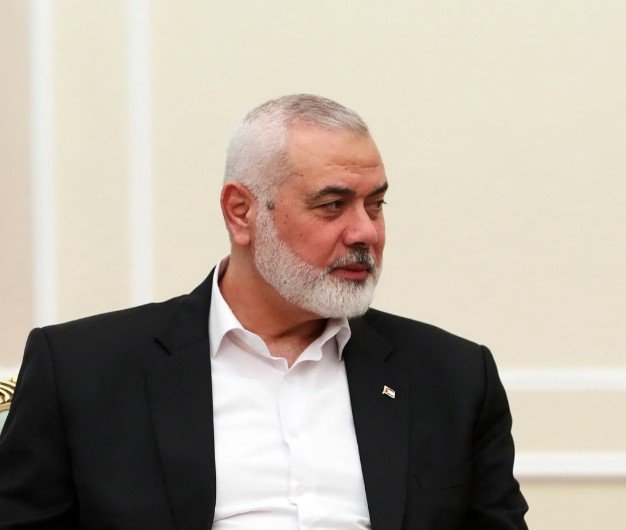In a defiant stance, Iran has rejected calls from the United States and Arab diplomats to show restraint following the assassination of Hamas leader Ismail Haniyeh in Tehran. The killing, which occurred at an Islamic Revolutionary Guard Corps guesthouse, has escalated tensions in the region. Iranian officials have vowed to retaliate, dismissing concerns about the potential for war and emphasizing their commitment to a strong response.
Iran’s Defiant Response
Iran’s response to the assassination of Ismail Haniyeh has been marked by a firm rejection of diplomatic calls for restraint. Iranian leaders have made it clear that they intend to retaliate, regardless of the potential consequences. This stance was communicated to Arab diplomats, who were informed that Iran’s response would not be tempered by concerns about escalating into a broader conflict. The assassination, which took place in a heavily guarded location, has been attributed to a significant security breach, further fueling Iran’s resolve to respond decisively.
The Iranian government has accused Israel of orchestrating the assassination, although no official claim of responsibility has been made. This accusation has intensified the already strained relations between Iran and Israel, with both sides preparing for potential retaliatory actions. Iranian officials have stated that their response will be “heavy and swift,” signaling a readiness to engage in a broader conflict if necessary. This defiant posture underscores Iran’s determination to assert its position in the region and respond forcefully to perceived acts of aggression.

In addition to the immediate response, Iran has launched an investigation into the security lapses that allowed the assassination to occur. The country’s judiciary has ordered the identification and arrest of any individuals who may have been negligent or complicit in the attack. This investigation aims to address the internal vulnerabilities that were exploited and to prevent similar incidents in the future. The focus on internal security measures highlights Iran’s broader strategy of strengthening its defenses while preparing for potential external conflicts.
Diplomatic Efforts and Regional Tensions
The assassination of Ismail Haniyeh has prompted a flurry of diplomatic activity aimed at preventing a further escalation of violence. The United States and Arab countries have been actively engaged in efforts to moderate Iran’s response, emphasizing the need for restraint and caution. These diplomatic efforts have included direct communications with Iranian officials, as well as appeals through international partners. Despite these efforts, Iran’s leadership has remained resolute in its decision to retaliate, viewing the assassination as a direct challenge to its sovereignty and security.
The broader regional context has also influenced Iran’s response. The Middle East is currently experiencing heightened tensions, with multiple conflicts and rivalries intersecting. The assassination of a high-profile Hamas leader in Tehran has added another layer of complexity to the regional dynamics. Iran’s decision to reject calls for restraint reflects its broader strategic calculations, which prioritize demonstrating strength and resolve in the face of perceived threats. This approach is intended to deter further acts of aggression and to assert Iran’s influence in the region.
The involvement of international actors, including the United States and European countries, has further complicated the situation. These actors have sought to de-escalate tensions by urging both Iran and Israel to exercise caution. However, the deeply entrenched rivalries and historical grievances in the region have made it challenging to achieve a lasting resolution. The assassination of Ismail Haniyeh has underscored the fragility of the current situation and the potential for rapid escalation if diplomatic efforts fail to yield results.
Potential Consequences and Future Outlook
The immediate aftermath of the assassination has raised concerns about the potential for a broader conflict in the Middle East. Iran’s determination to retaliate, coupled with Israel’s readiness to defend against any attacks, has created a volatile situation. The risk of miscalculation or unintended escalation is high, with both sides preparing for a range of scenarios. The involvement of other regional actors, such as Jordan and Lebanon, further complicates the situation and increases the potential for a wider conflict.
The international community is closely monitoring the developments, with calls for restraint and dialogue continuing. The United Nations and other international organizations have emphasized the need for a peaceful resolution to the crisis. However, the deeply rooted animosities and strategic interests at play make it difficult to achieve a quick resolution. The assassination of Ismail Haniyeh has highlighted the challenges of maintaining stability in a region marked by longstanding conflicts and rivalries.
Looking ahead, the focus will be on managing the immediate fallout from the assassination and preventing further escalation. Diplomatic efforts will continue, with the aim of persuading Iran to exercise restraint and avoid actions that could lead to a broader conflict. The international community will also be watching closely to see how Israel responds to any potential Iranian retaliation. The situation remains fluid, with the potential for significant developments in the coming days and weeks.
